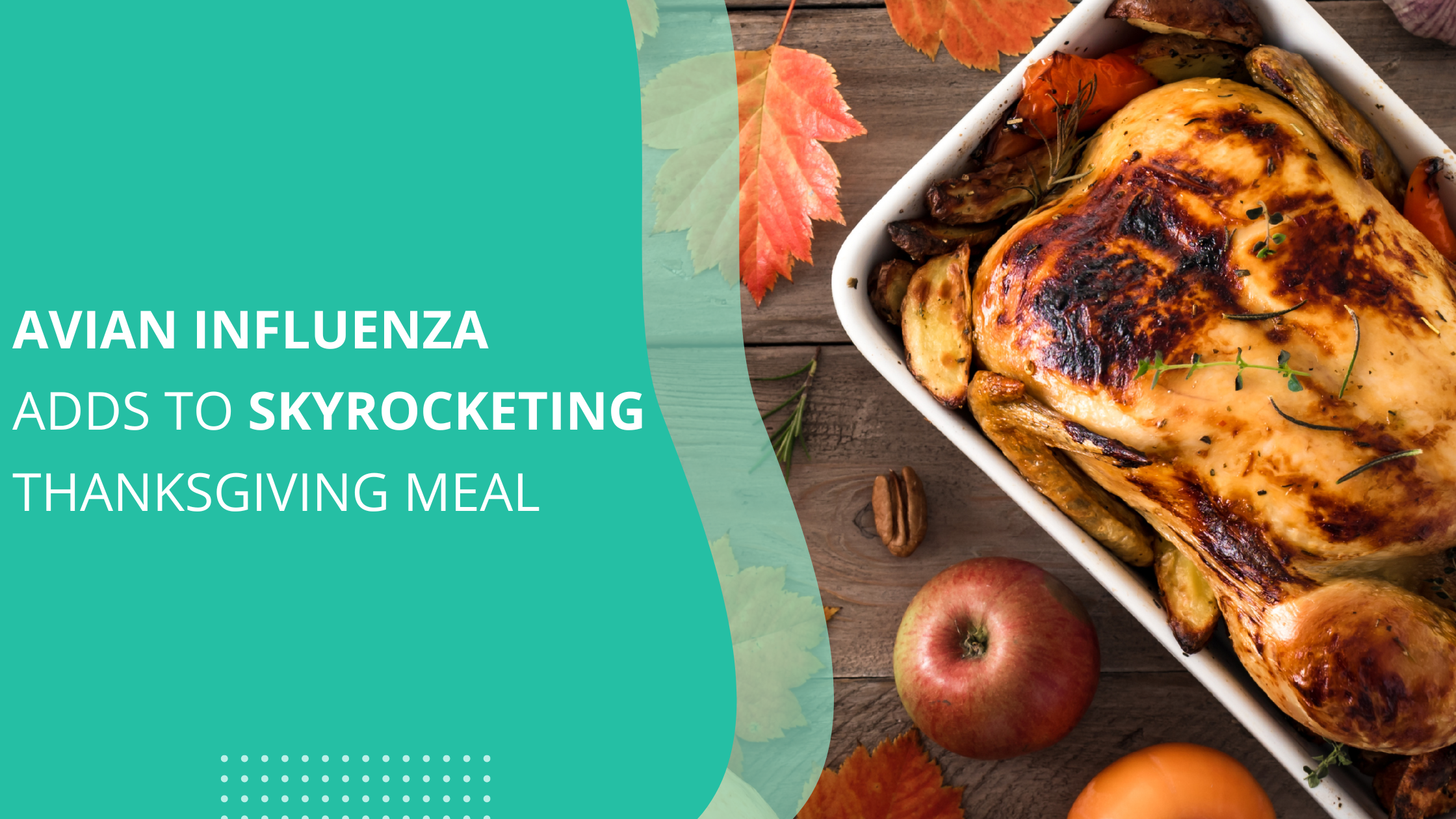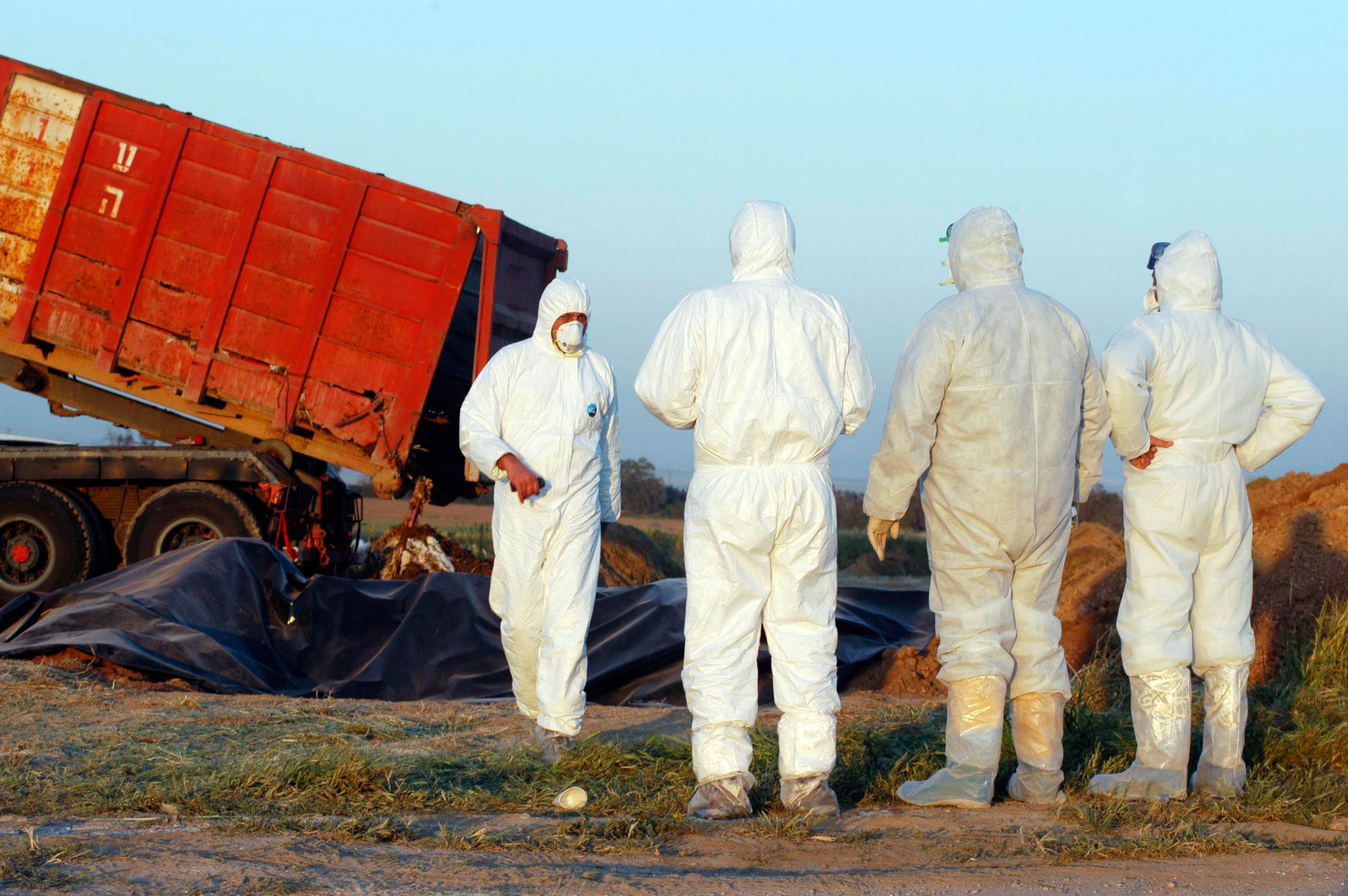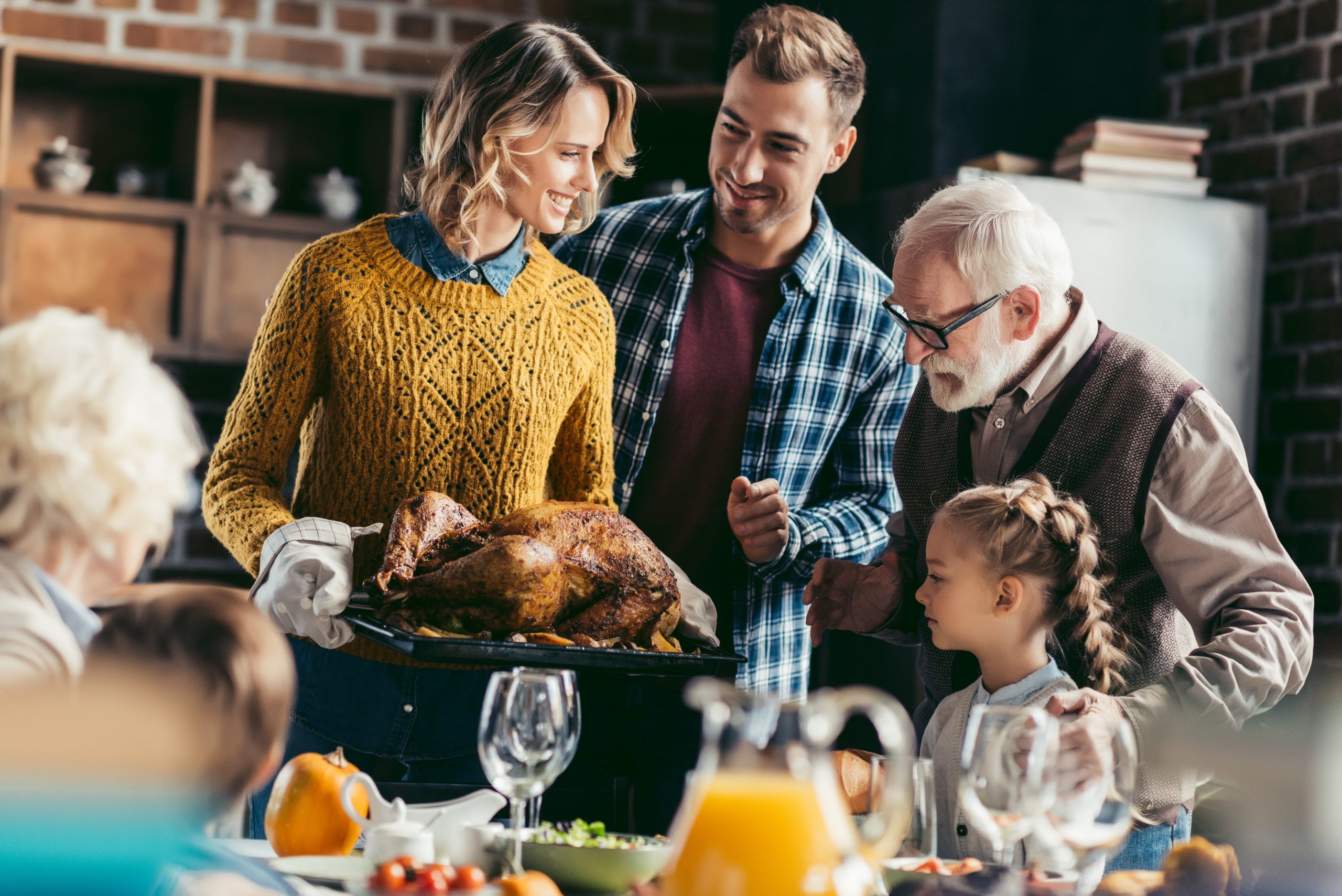
Turkey jumps 73% in price over last year
Thanksgiving is a time for families and loved ones to get together and share a meal and give thanks- a longstanding tradition in many households across the U.S. The centerpiece for many of these meals is the turkey. Recent outbreaks of avian influenza has put a dent in available turkeys, sending the price to skyrocket. Over the past year over 6 million turkeys had to be culled due to highly pathogenic avian influenza(HPAI). This resulted in 2.5 percent reduction in turkeys going to market, however the USDA projects the numbers should rebound to pre cull (kill) numbers within a short time. The CDC has an interactive map reveals where outbreaks are occurring in real time in both commercial and home flocks for each state and county.
Wholesale prices for frozen whole turkey hens:
- 2019 average: $0.89 per pound
- 2020 average: $1.07 per pound
- 2021 average: $1.23 per pound
- 2022 average: $1.69 per pound (73% increase over 2021)
Avian flu not the only reason Thanksgiving will be more expensive. Exploding feed prices and energy prices are also contributing to a much more expensive thanksgiving meal. Aceoss the board food prices have risen Farm Bureau projects that Thanksgiving dinner will be 14% higher than 2021.
Domestic pets at risk
Bird flu is spread primarily through migratory waterfowl as they travel to their destinations. Bird droppings and sick or dead birds infected with the bird flu can infect pets if consumed or have prolonged contact with an infected bird. It is highly unlikely (but not impossible) for humans to come down with bird flu if you follow these precautions:
Watch for signs of illness in your pet
If your pet shows signs of illness that are indicative of bird flu:
- Sudden death with no prior signs
- Low energy or appetite
- Purple discoloration or swelling of various body parts
- Reduced egg production, or soft-shelled/misshapen eggs
- Nasal discharge, coughing, or sneezing
- Lack of coordination
- Diarrhea
Don’t touch sick or dead birds, their feces or litter, or any surface or water source (ponds, waterers, buckets, pans, troughs) that might be contaminated with their saliva, feces, or any other bodily fluids without wearing personal protective equipment (PPE).

What to do if you find a dead or sick bird
If you find a dead bird, don’t touch it with your bare hands. Use a plastic bag or gloved hands and place it in garbage can and dispose of it in your garbage. To report unusual signs in birds you have seen in the wild, call 1-866-536-7593.
Can you get avian flu from eating infected turkey?
Bird flu virus can be passed through bird droppings and saliva on surfaces such as cages, tractors, and other farm equipment. Most people don’t need to worry about getting sick with bird flu virus. You cannot get bird flu from eating fully cooked chicken, turkey, or duck, because heat kills the virus.
Avian flu food safety
Proper food handling will prevent not only avian flu but foodborne illnesses such as E coli and Salmonella (The Jase case contains antibiotics that can handle Salmonella if the need arises) from contaminating you and your cooked food.
USDA Questions and Answers: Food Safety and Avian Influenza
(Excerpts from USDA pdf on avian flu and food safety)
- Can I get avian influenza from eating poultry or eggs?
- No. Poultry and eggs that are properly prepared and cooked are safe to eat. Proper food
safety practices are important every day. In addition to proper processing, proper handling and
cooking of poultry provides protection from viruses and bacteria, including avian influenza. As
we remind consumers each and everyday, there are four basic food safety steps to follow:
CLEAN, SEPARATE, COOK, and CHILL.
- Does proper food handling prevent avian influenza?
- Avian influenza is not transmissible by eating properly prepared poultry, so properly
prepared and cooked poultry and eggs are safe to eat. The chance of infected poultry or eggs
entering the food chain is extremely low because of the rapid onset of symptoms in poultry as
well as the safeguards USDA has in place, which include testing of flocks, and Federal
inspection programs.
- What does proper food handling mean?
- Proper handling and cooking of poultry provides protection against all avian influenza
viruses, as it does against other viruses and bacteria, including Salmonella and E.coli. Safe food
handling and preparation are important at all times. USDA continually reminds consumers to
practice safe food handling and preparation every day.
Cooking poultry, eggs, and other poultry products to the proper temperature and preventing
cross-contamination between raw and cooked food is the key to safety. You should:
- Wash hands with warm water and soap for at least 20 seconds before and after handling raw
poultry and eggs;
- Prevent cross-contamination by keeping raw poultry and eggs away from other foods;
- After cutting raw meat, wash cutting board, knife, and countertops with hot, soapy water;
- Use a food thermometer to ensure poultry has reached the safe internal temperature of at least
165 °F to kill foodborne germs that might be present, including the avian influenza viruses. Sanitize cutting boards by using a solution of 1 tablespoon chlorine bleach in 1 gallon of water.
Contact USDA Meat & Poultry Hotline with questions
Consumers with questions about the safe storage, handling, or preparation of meat,
poultry, and egg products, can call the USDA Meat & Poultry Hotline at: 1-888-MPHotline,
that’s 1-888-674-6854. The hotline is available in English and Spanish and can be reached from
10 a.m. to 4 p.m. (Eastern Time) Monday through Friday. Also, “Ask Karen” is the FSIS virtual
representative available 24 hours a day to answer your questions at www.fsis.usda.gov.
- Brooke Lounsbury
Medical Content Writer
Lifesaving Medications
Recent Posts
Keeping you informed and safe.
FAQ: Our most commonly asked questions about Jase
If you’re considering Jase, chances are you’ve paused and thought, “This makes sense, but I still have a few questions.”You’re not alone. Here are the most common ones we hear, answered plainly. Is this really doctor-prescribed? Yes. Every Jase order is reviewed by a...
Medical Readiness: What Really Kills First
When Disaster Strikes, It’s Not Hunger or Thirst That Takes the First Lives In every disaster zone, from hurricanes in the Caribbean to war zones in Ukraine, the pattern is the same. People worry about food and water, but it’s infection that kills first. A small wound...
Exploring Dr. William Makis’ Hybrid Orthomolecular Cancer Protocol: Focus on Ivermectin and Mebendazole/Fenbendazole
Exploring Dr. William Makis’ Hybrid Orthomolecular Cancer Protocol: Focus on Ivermectin and Mebendazole/Fenbendazole *Disclaimer: This article is for educational purposes and does not constitute medical advice. Always seek professional guidance.* In the evolving...




